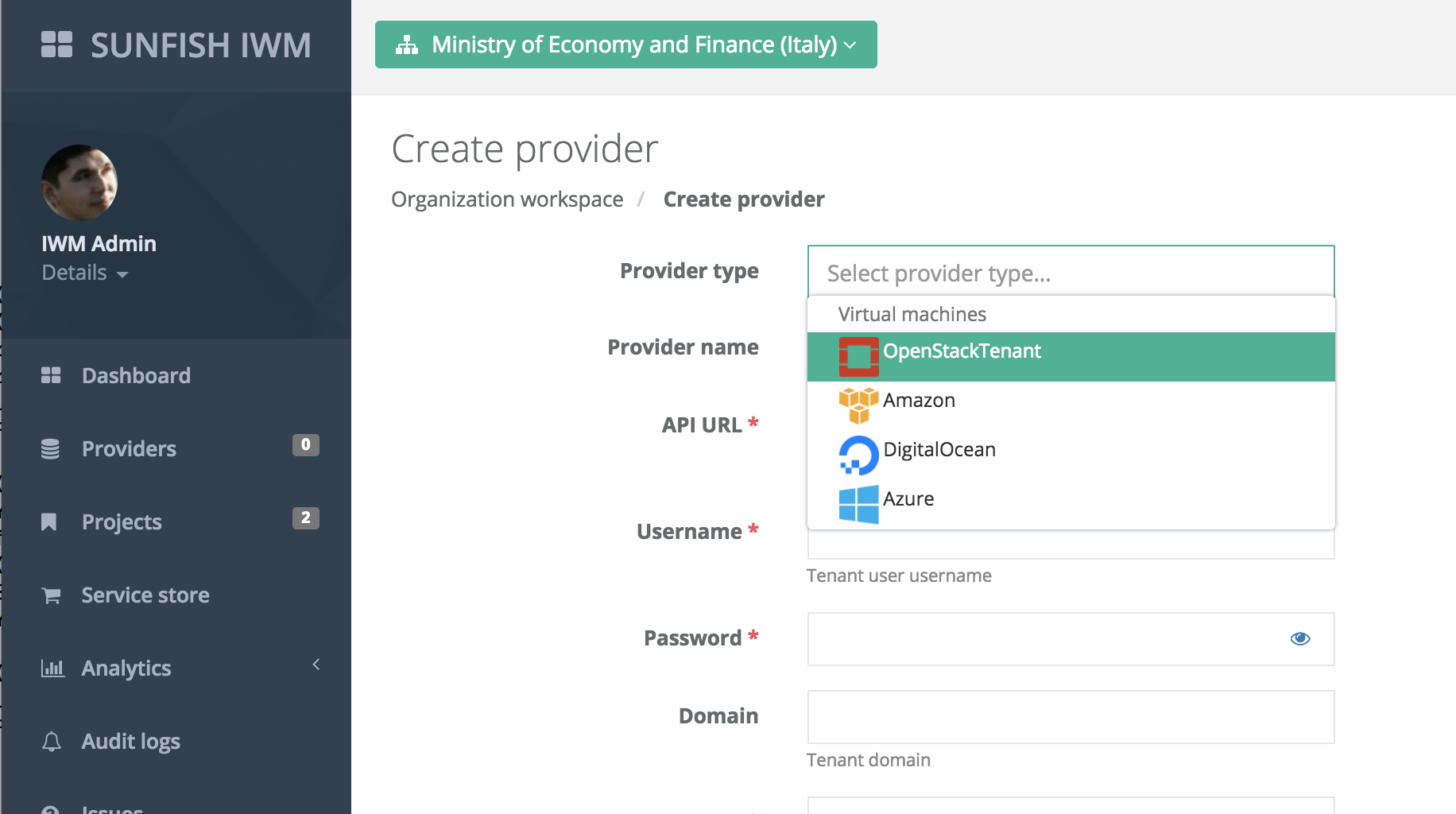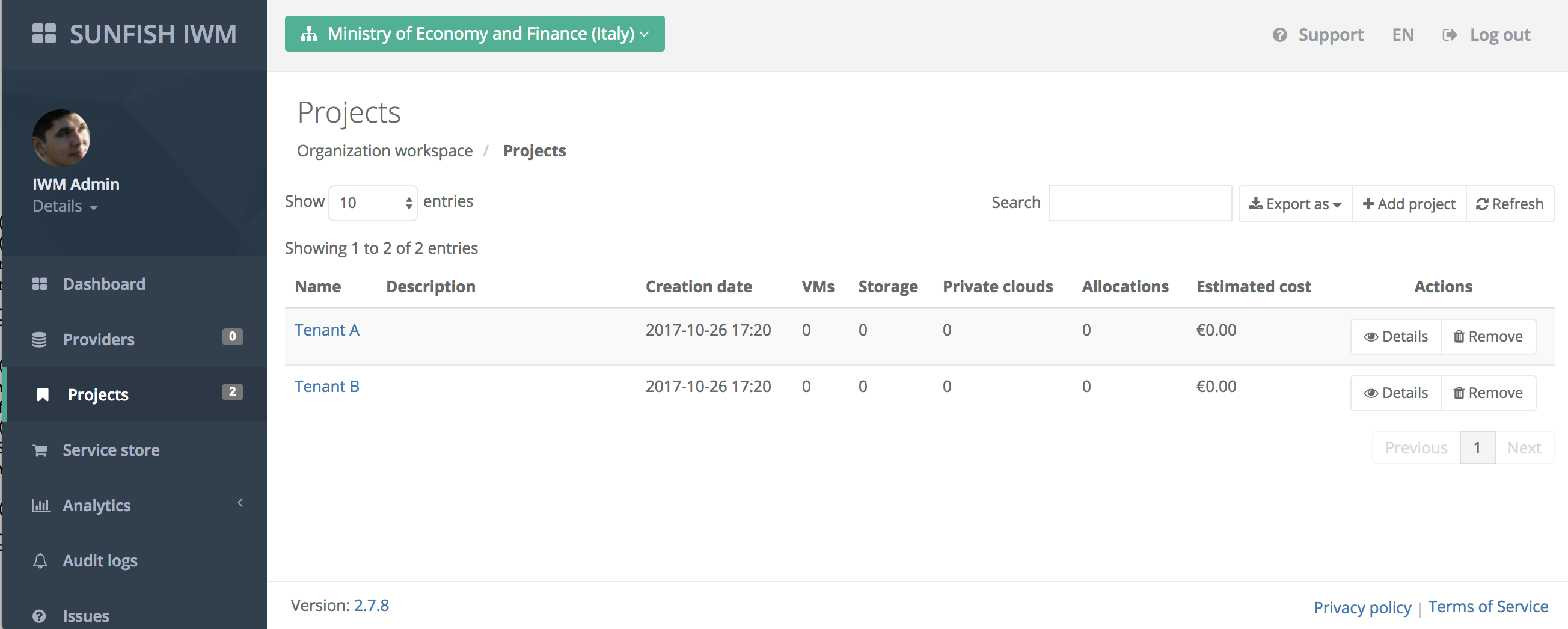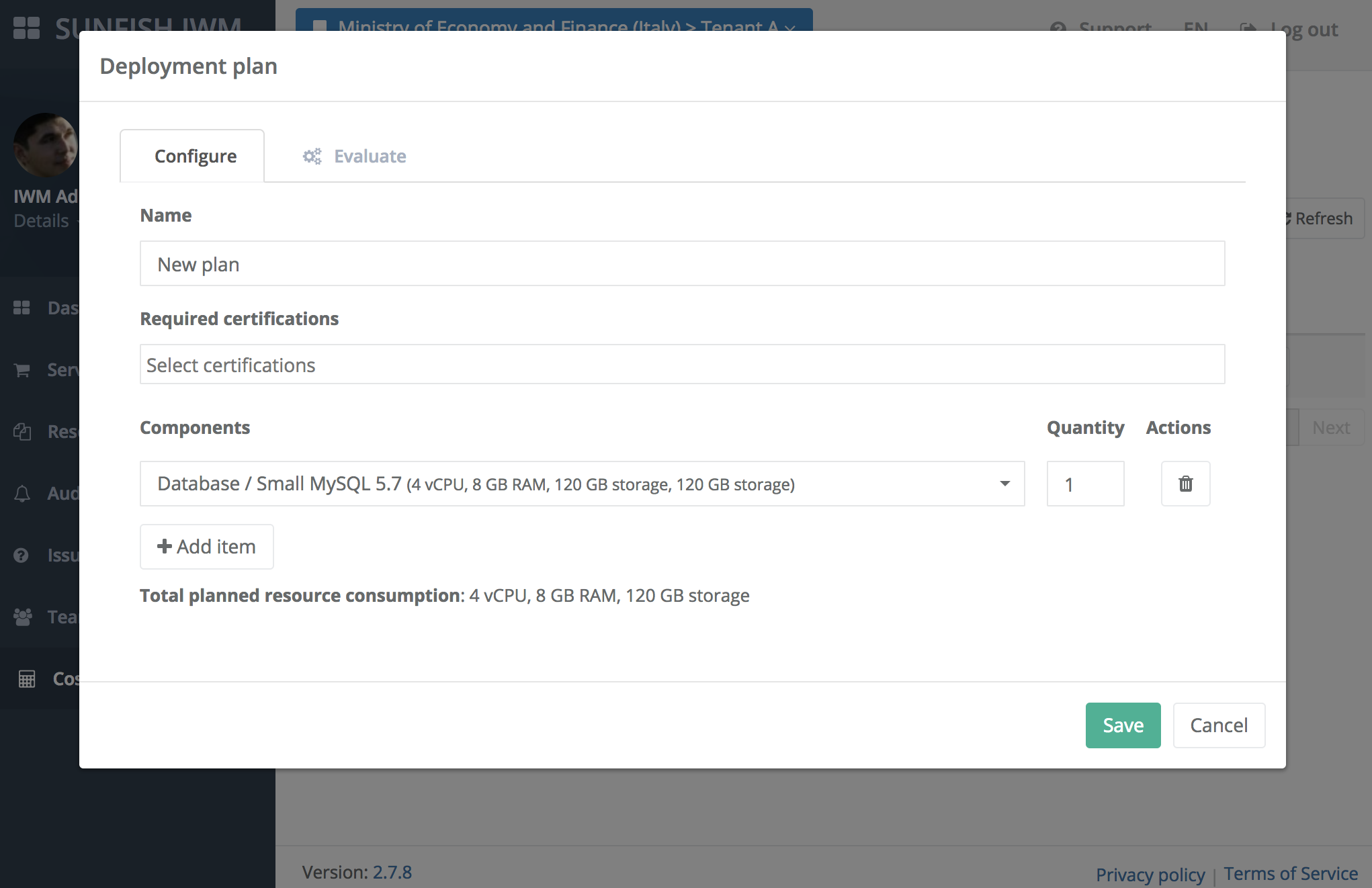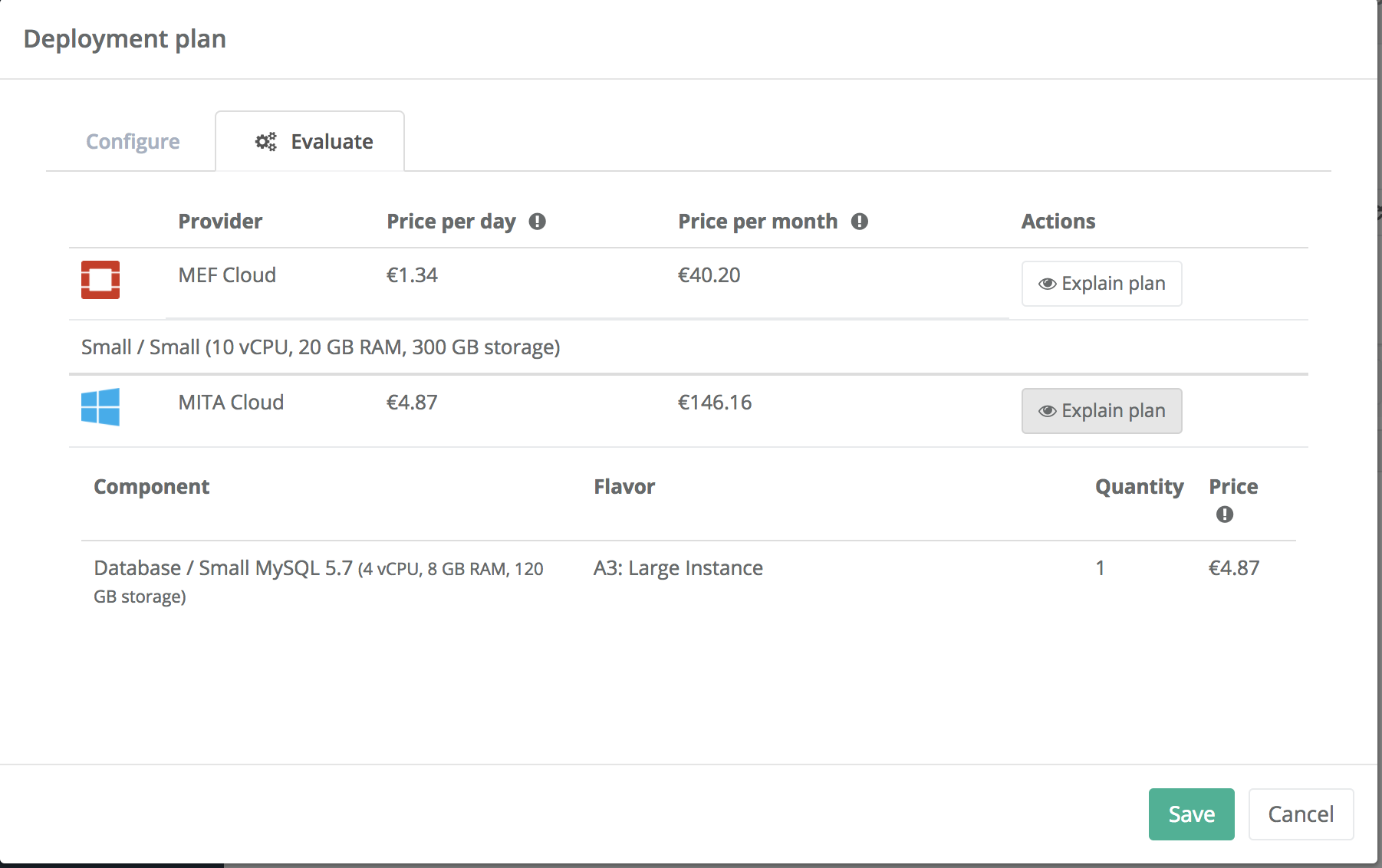Overview of Intelligent Workload Manager¶
SUNFISH Federation provides automated services for joining and leaving the federation, as well as an interface to the available Federation services for a Service Consumer with ability to request optimized service list of services matching Consumer requirements better. A common aspect of all use cases is requirement to be able to retrieve information about the Federation resources and optionally schedule execution of a workload on a particular service provider. Within SUNFISH, a component responsible for delivering such functionality is called Intelligent Workload Manager (IWM).
Optimization model applicable to the scenario of Service provisioning by Service Consumer is offering an improvement over local scheduling while imposing as little as possible of additional overhead on the definition of the workload requirements. Improvement means achieving a better outcome regarding user-defined parameters (e.g. cost) while preserving the strict requirements for the job payload. The goal of the model is to offer an added value over local scope of resources by finding and managing a globally optimal target for the Service Consumer’s planned workload.
Optimisation model is a logical component exposed to the user in form of an optional ordering and filtering capability used during provider lookup request.
IWM is based on open-source Waldur cloud brokerage platform. The latter is extended to include more fine-grained optimisation capability. The functionality developed within SUNFISH has been integrated with the upstream.
Screenshots¶
Screenshots below are taken from a demo deployment of IWM in a federation.
Instructions for deploying IWM¶
IWM functionality has been integrated into Waldur. As such, deployment of IWM is done in the same fashion as upstream. Installation script is below. Deployment requirements are:
- CentOS 7 or other RHEL7-compliant operating system
- At least 8GB of RAM, preferably 2 cores or more.
yum clean all
yum -y update
# Configure repositories
yum -y install epel-release
yum -y install https://download.postgresql.org/pub/repos/yum/9.5/redhat/rhel-7-x86_64/pgdg-centos95-9.5-2.noarch.rpm
yum -y install https://opennodecloud.com/centos/7/elastic-release.rpm
yum -y install https://opennodecloud.com/centos/7/waldur-release.rpm
# Set up PostgreSQL
yum -y install postgresql95-server
/usr/pgsql-9.5/bin/postgresql95-setup initdb
systemctl start postgresql-9.5
systemctl enable postgresql-9.5
su - postgres -c "/usr/pgsql-9.5/bin/createdb -EUTF8 waldur"
su - postgres -c "/usr/pgsql-9.5/bin/createuser waldur"
# Set up Redis
yum -y install redis
systemctl start redis
systemctl enable redis
# Set up Elasticsearch
yum -y install elasticsearch java
systemctl start elasticsearch
systemctl enable elasticsearch
# Set up Logstash
yum -y install logstash
cat > /etc/logstash/conf.d/waldur-events.json <<EOF
input {
tcp {
codec => json
port => 5959
type => "waldur-event"
}
}
filter {
if [type] == "waldur-event" {
json {
source => "message"
}
mutate {
remove_field => [ "class", "file", "logger_name", "method", "path", "priority", "thread" ]
}
grok {
match => { "host" => "%{IPORHOST:host}:%{POSINT}" }
overwrite => [ "host" ]
}
}
}
output {
elasticsearch { }
}
EOF
systemctl start logstash
systemctl enable logstash
# Set up Waldur Core
yum -y install waldur-core
su - waldur -c "waldur migrate --noinput"
systemctl start waldur-uwsgi
systemctl enable waldur-uwsgi
systemctl start waldur-celery
systemctl enable waldur-celery
systemctl start waldur-celerybeat
systemctl enable waldur-celerybeat
su - waldur -c "waldur createstaffuser -u admin -p admin"
# Set up Waldur MasterMind
yum -y install centos-release-openstack-pike
yum -y install waldur-mastermind
su - waldur -c "waldur migrate --noinput"
systemctl restart waldur-uwsgi
systemctl restart waldur-celery
systemctl restart waldur-celerybeat
# Set up Waldur HomePort
yum -y install waldur-homeport
# Set up Nginx
yum -y install nginx
systemctl start nginx
systemctl enable nginx




